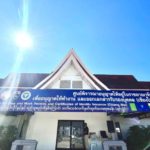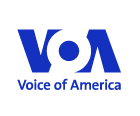
The Thai government, responding to concerns over illegal fishing and human trafficking, has begun setting up a system to trace the catches of Thai and foreign fishing vessels that use Thai ports, while CP Foods, one of the largest private sector shrimp producers, said last week that it has formed an audit team to inspect and eliminate violations and any abuse of workers in its supply chain.
Catch certification systems help authorities trace where fishing vessels reeled in their bounty, where seafood-processing plants sourced their raw materials, and ensure importers consumers that seafood products meet environmental labor standards. They are a relatively new phenomenon, with even some developed countries implementing them only in recent years, such as Canada, which launched its system in 2010.
“The system will allow us to trace all boats to determine if they are involved in any human trafficking or labor abuse,” said Benjamaporn Wongnakornsawong, secretary for public affairs at the Command Center to Combat Illegal Fishing. The government established the Command Center last year to coordinate and oversee Thailand’s efforts to end illegal, unregulated and unreported (IUU) fishing.
The campaign is in response to a warning by the European Union that it would ban imports of seafood from Thailand unless the Kingdom took serious and effective steps to end IUU fishing and the human trafficking and labor abuse that has been found in its seafood industry, which brings in $7 billion a year in exports. Canada and several other nations implemented traceability systems after receiving similar warnings from the E.U.
For boats to have their catches certified, they will have to report details of crew and cargo to the Command Center every time they leave port, and when they return. The goal is to ensure all seafood is legally caught and the quality is good enough to be sold to seafood processing companies.
“We’ve never had such a system, so the certificates will ensure all boats are under the same regulations and can be traced,” Benjamaporn said.
The private sector has also been taking steps to raise standards and comply with requirements of the E.U., the United States and private sector importers. Charoen Pokphand Foods, the Kingdom’s largest exporter of shrimp, said last week that it had formed an audit team to monitor and check the company’s traceability throughout its supply chain.
The audit team, called the “Shrimp Sustainable Supply Chain Task Force,” will focus on whether fishing vessels are meeting the new requirements of the government and international standards and whether they are committing any labor violations.
The company said that it has complied with the E.U.’s warning about traceability by ensuring the company will use only legal fish that meet the International Fishmeal and Fish Oil Organization’s (IFFO) standard; the company will only use IFFO supported fish byproducts, and when catching fish the company has to comply with international standards and be able to determine the origin of the products.




